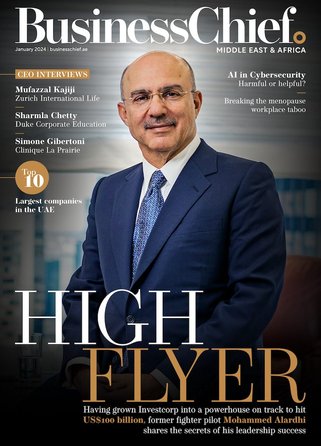COP28 Talks: Rushil Agarwal, Business Lead MENA, AXA Climate

With global temperatures hitting record highs, and extreme weather events impacting people around the globe, COP28 UAE marks a pivotal point in the global response to the climate crisis.
For the first time since the Paris Agreement, this COP will take stock and measure the progress of each nation – and chart a course of action to accelerate climate change and close the gaps needed to keep global warming below 1.5C.
Including key themes of mitigation, adaptation, loss and damage and finance, the GST is expected to provide directions for greater climate ambition.
Rushil Agarwal, Climate School Market Lead for India and the Middle East at AXA Climate, says he wants to see “genuine and tangible progress” and points to measurement as essential to this.
“When progress is assessed, countries can adapt their net zero pathways accordingly.”
Rushil points to progress around climate justice and finance as especially “vital” and believes COP28 in the UAE could provide the platform for commitment.
“Developed nations (the global north) have spoken about allocating capital to help developing nations (the global south) with the transition,” says Agarwal, and with the UAE at the “intersection of the global north and global south, the Middle East can play an important role as a broker in these negotiations”.
“I hope we can see progress on the financial commitment to help the global south. We all know that climate change does not affect every country in the same way, and developing nations need help to move forward.”
Corporate challenges
Agarwal – who supports businesses in building ESG capacity across functions working with organisations such as Microsoft, PwC and L’Oreal – believes that successive COPs in the region have been transformative for corporate sustainability, with a surge in interest in global sustainability and climate action.
“The last few years have seen many sustainability initiatives undertaken by corporates in the region, especially those listed on the Abu Dhabi Securities Exchange (ADX) and Dubai Financial Market (DFM),” says Agarwal.
“ESG considerations are now a top priority for companies, driven by government initiatives and the UAE's 2050 net-zero emissions target. Furthermore, public companies are under increasing pressure from investors to incorporate ESG parameters into their investment decisions.”
While this marks a positive step, there remains the need for more “robust reporting and KPIs”, according to Argawal.
“There needs to be a regulatory framework in place which mandates reporting and sustainability KPIs along the lines of other parts of the world – this would be a major help.”
Another corporate challenge is around alignment.
“Sustainability is usually still driven by ESG teams, and they don’t necessarily have the leadership team on board. Corporate sustainability needs to come right from the top and right down to the frontline to be effective.”
With excellent representation from the private sector at COP28, Argawal says he’d like to see “more alignment from them, and some clear signs private companies are ready to carbonise”.
What is AXA Climate School?
AXA Cimate School is AXA’s online learning experience, the first programme to add value for HR and sustainability departments to inform and train all employees to achieve the sustainable transformation of their profession.
As well as providing over 40 hours of digital training content to major companies, which are keen to support their employees in the evolution of their professions, AXA Climate provides consulting services to the agri-food, industrial, financial and public sectors to help them successfully adapt to climate change and biodiversity loss, in a regenerative way.
Featured Articles
SAP has announced it has appointed a new President for a newly-created EMEA region, aiming to make the most of the opportunities of cloud and AI
technology
From fighter pilot to fashion house financier, Mohammed Alardhi has taken Investcorp to great heights – so what’s the secret to his success?
Dr Omar Al-Attas, Head of Environmental Protection and Regeneration at Red Sea Global, shares his COP28 hopes and approach to regenerative tourism
strategy




